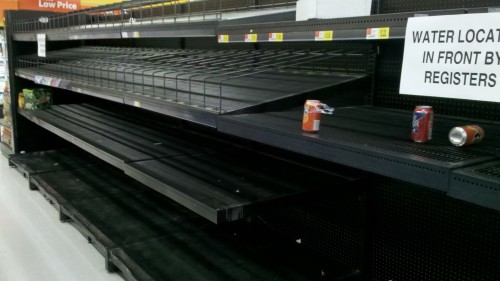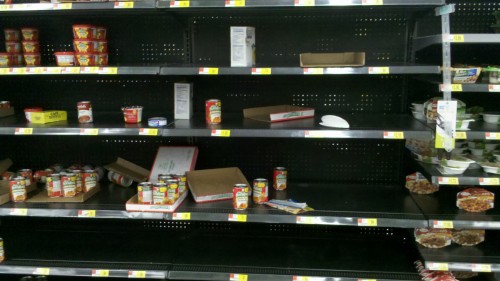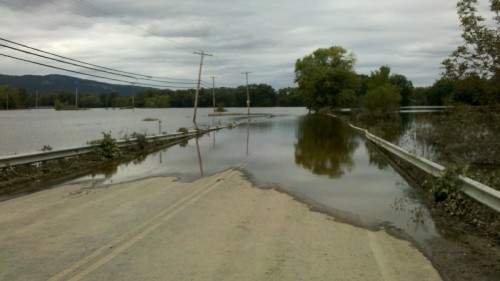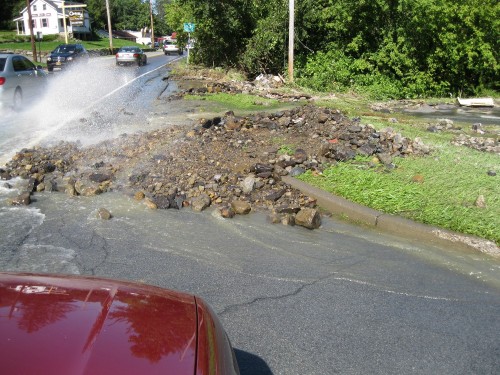Why Disaster Preparedness and Survival are Important For Everyone. What You Can do to Prepare.
What is survival?
When most people think of survival or emergency readiness, they probably imagine a bunch of gun toting camouflaged rednecks running through the woods shooting anything that moves. But disaster preparedness is important for everyone. Every single person should have a small emergency plan in effect and have some sort of survival pack set aside for an emergency or natural disaster.
Just think about it, the victims of Katrina would surely tell you about the importance of an emergency plan. Here in New York, and the East Coast, people will tell you that being prepared is important. Who would have thought that we would have an earthquake on the east coast? Then, a week later, a devastating hurricane. And then, just a week after that - another hurricane! Millions of people were affected by these horrible natural disasters. Most were not prepared in advance. People left New York City in droves, heading out to the hills and higher ground for safety. Ironically, the higher ground got hit the worst. People lost homes, jobs, possessions and some even lost their lives. The evidence of the destruction is still visible today, months later as you drive through the countryside. Roads are still washed out, bridges are still missing in places. The damage was extreme. Entire villages got wiped out.
Survival and disaster preparedness is not about running around with guns and stockpiling ammunition and food. It is about being ready for any type of disaster or emergency, no matter if it is financial, economical or a natural disaster. Even a loss of power can leave you helpless for days or even weeks at a time, if you are not prepared. After the hurricane, millions of people were left without power for a week. After a few days with no power the foods in the refrigerator and freezer will be ruined. Many people have electric stoves and ovens as well. Water, heat and waste management are all run by electricity.
You must have a plan in effect and be ready for any emergency. And you do not need to spend thousands of dollars to do it.
Why should I be concerned about emergency preparedness?
Recently, after experiencing a surprise earthquake on the East Coast, people also suffered a devastating hurricane. This time we had warning in advance. People flocked to the stores as much as five days before the hurricane in order to buy provisions. I went "early" three days before the expected hurricane landfall to get supplies. What I really needed was water. I already had most other items in full supply. When I got to the local Walmart, this is what I found:

The local grocery stores were sold out of water on the shelves. Three days before the hurricane! And this was 75 miles inland from the coast! People were in a mad buying rush. Gas stations were swamped with people stocking up. Grocery shelves were bare. Generators and gas cans were sold out as far as 200 miles outside the expected path of the hurricane. You may notice a sign on the shelf saying that water was available up front. This was the expensive stuff. The stuff no-one can afford. But even that eventually sold out.

The local grocery store shelves were nearly stripped bare - 3 days before the hurricane was expected to hit. And this was an hour and a half inland from the coast where the damage was expected to be the worst.
So, you see, waiting for a disaster to hit before running out for supplies is too late. Often disaster hits unexpectedly, such as a fire, earthquake or tornado. The country has been seeing some very unusual storm patterns recently and people have seen natural disasters outside their normal areas. Do not think you will always be safe. In winter, a sudden snow or ice storm can leave you without power for days. Just a tree falling somewhere can cut power to thousands of people in a second. With the power grids overburdened with heavy power consumption, it now takes longer for the power companies to repair all the damages. Often they make a repair only to have it go right out again due to a weak line or too much drain.


The above two images show the aftermath of Hurricane Irene. Roads were either washed out or covered in rocks and boulders. Many roads were under water for days afterwards. Where I was staying, on top of the mountain, we thought we would be safe. People came out from the city to stay with us. Our basement and garage got flooded with a foot of water. The rain was so intense that the garage floor drain could not handle it all and just plugged up. Right after the rain stopped falling, we went out with a 4 wheel drive truck to see if we could get out. All the roads were still either flooded, covered by fallen trees or covered with rocks so badly that we could not leave the house for a couple days. In some areas cars were fully submerged in front of flooded homes. Many in the area lost power. This means no running or hot water, no lights, loss of chilled foods and no heat.

A sudden blizzard can leave you trapped at home or without power for days or weeks. The image above was taken in February 2010 after an overnight storm. It took me three days to get the car out of the snow and get it to the road. It was a private road and not plowed. By then all food, water and fuel were sold out at the stores.
What can you do to be prepared?
You and your family must have an emergency plan. Practice it and know it by heart. Every member of your family should know what to do in case of any type of emergency. There are many types of disaster such as fire, flood, earthquake, tornado, loss of job and more. Way too many to cover individually here. But we can discuss some basic provisions you should have on hand. And these items should be easy to reach in an emergency. And dont forget, often you will need to find these items in the dark.
This list is meant to help out in case of an emergency. It is not complete. It is just a bare minimum to help out for a few days if needed. Keep some foods on hand that do not need to be cooked. Dried or canned foods and snacks.
Candles for light and heat.
Oil lamps for light and heat.
Canned foods. Keep them rotated.
Hand can opener.
Dried foods, such as granola bars.
Snack foods, chips, nuts or raisins.
Lots of water. Keep at least a couple gallons per family member.
Hand crank emergency flashlight. With radio is even better.
Foil emergency blankets.
First aid kit.
Bicycle for escape into the country or shopping trip.
Extra fuel for vehicles.
This list is a bare minimum. You can add to it as needed. These items do not need to cost you a year's income either. Most can be found at the local dollar store on your next shopping trip. Even the hand crank flashlight can be found very cheaply. Keep your vehicle tanked up at all times. Many people cannot afford to keep cans of fuel stored away. Many do not have space for it. So keep your car gas tank always above the half full mark to be safe. Many people keep their car down near empty and just put a few dollars at a time into it. If you can save up for just one single fill up and then train yourself to keep it above half way, this can save your life one day.
If you are prepared for any type of disaster or emergency, then the announcement of a sudden blizzard or ice storm can be seen as a sort of adventure instead of the terror most experience. Do not wait until the last minute to get supplies. If you have them on hand at all times, you can even come through the problem in some sort of comfort.
Buy an extra can of food next time you go shopping. Put it away. Each time you go shopping, spend a dollar extra on emergency supplies. You will be quite surprised how fast this will build up.
During the last unseasonal October blizzard that dumped 15 inches on us overnight and left millions without power, I simply spent the night in my off grid survival camper and had a nice night.
About the Author
| Troy Reid |



